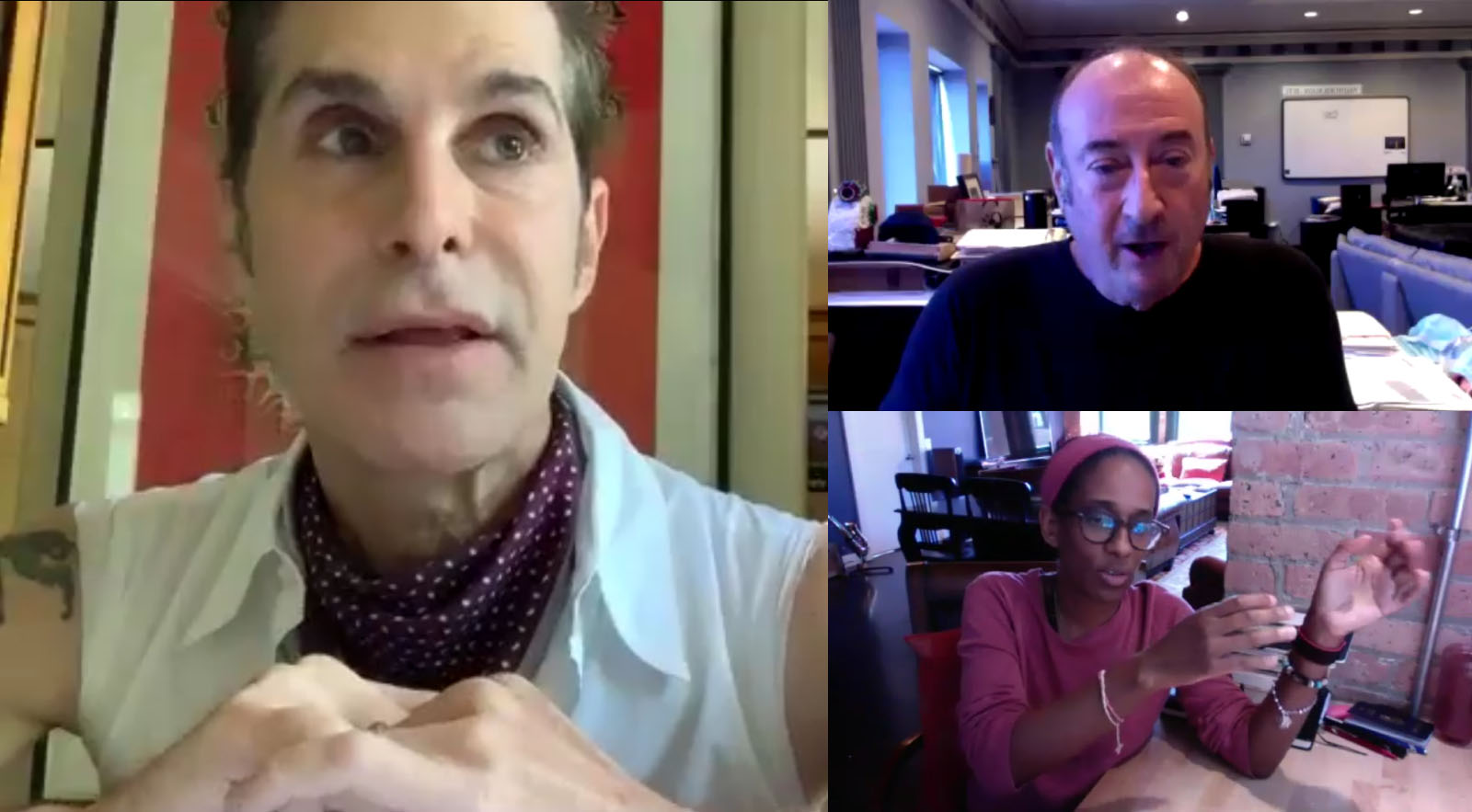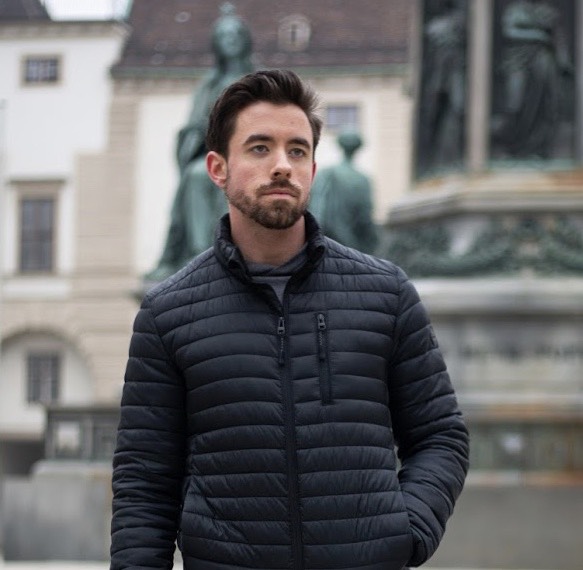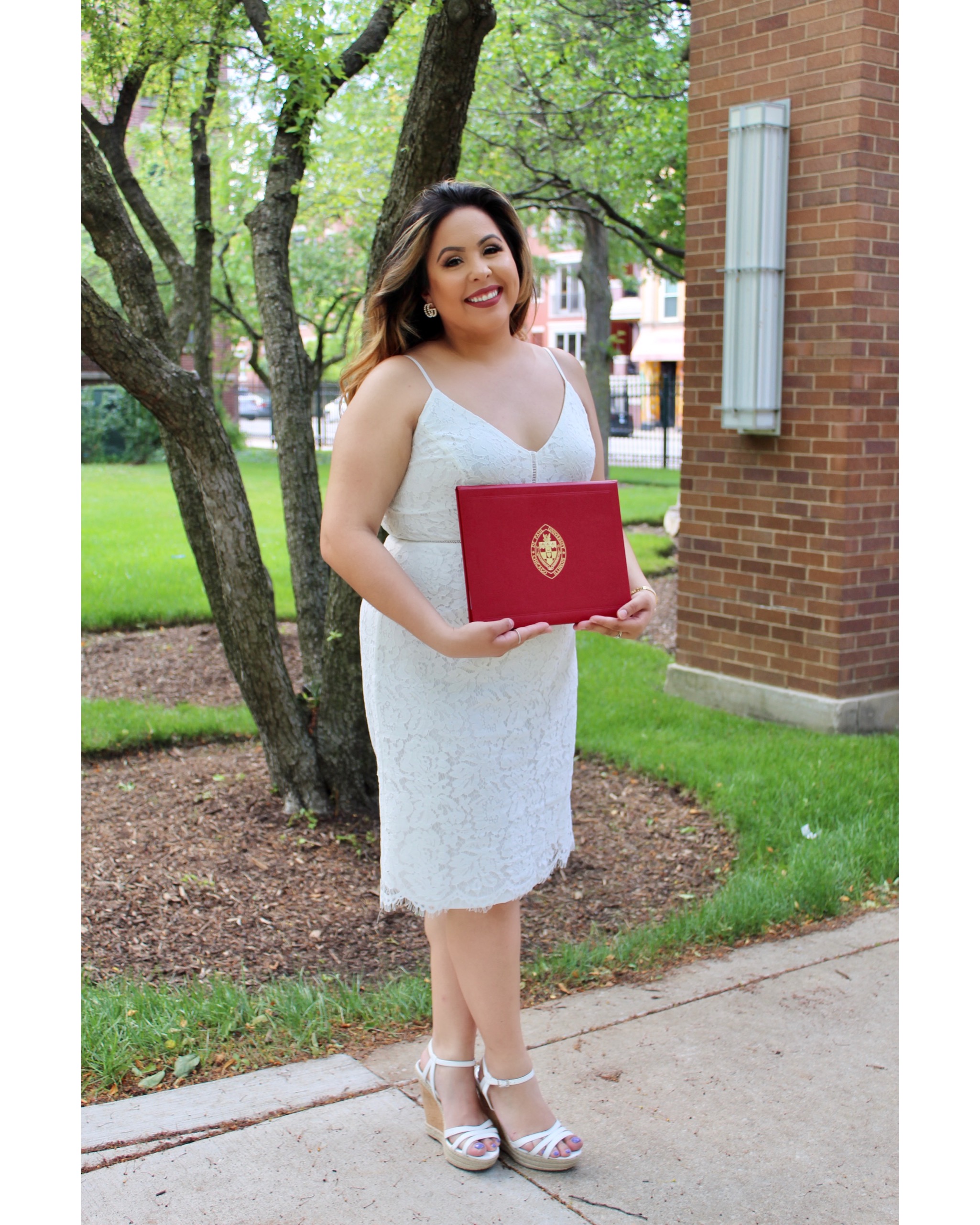 A new course that brings College of Communications students behind the scenes at the Lollapalooza music festival went virtual this summer, and students connected with industry leaders via Zoom. Clockwise from left: rock musician Perry Farrell, a co-founder of the festival; Chicago club owner Joe Shanahan of Metro and Smart Bar; and Binta Niambi Brown of B|G Mouth Records. (Images courtesy of Daniel Makagon)
A new course that brings College of Communications students behind the scenes at the Lollapalooza music festival went virtual this summer, and students connected with industry leaders via Zoom. Clockwise from left: rock musician Perry Farrell, a co-founder of the festival; Chicago club owner Joe Shanahan of Metro and Smart Bar; and Binta Niambi Brown of B|G Mouth Records. (Images courtesy of Daniel Makagon)Most summers, Lollapalooza brings swarms of music fans through DePaul’s Loop Campus on their way to the festival in Grant Park. The event brings a buzz of excitement and tourism to the city, and holds academic significance for those who study media and the music industry.
“I think the festival is unique because of where it happens,” says communications studies professor Daniel Makagon. “You can see the skyline, and it’s in an iconic Chicago park setting with people who come from all around the world. There are business experiences and cultural experiences happening at Lollapalooza, and our students can learn how festivals are curated and constructed."
With this in mind, Makagon planned an instantly popular summer class for 2020: the first Lollapalooza University at DePaul. Originally, students were set to have all-access passes and spend time backstage learning and pitching-in with festival organizers. When the live music industry went on hold due to the pandemic, Makagon and his students decided to make the most of it.
“We were disappointed. However, since people are working remotely, we were able to meet with a lot of industry insiders who might not normally have the time to talk with our class,” he says. Each week, students tuned in to Zoom to hear from these “heavy hitters” in the music industry.
Music industry leaders connect with students
One of those guests was Perry Farrell, a co-founder of Lollapalooza and the lead singer of the band, Jane’s Addiction. Hearing about Farrell’s experience fascinated Lucas Hopkins, a student in the course majoring in communications and technology.
“This kind of ragtag bunch of guys has created this huge festival, now it’s one of the biggest in the world and something everybody wants to be part of,” Hopkins says.
 Student Lucas Hopkins, a military veteran, took the Lollapalooza course to explore career options that would go beyond a desk job. (Image courtesy of Lucas Hopkins)
Student Lucas Hopkins, a military veteran, took the Lollapalooza course to explore career options that would go beyond a desk job. (Image courtesy of Lucas Hopkins) Other guest speakers included Jeff McClusky, founder of music promotion company JMA; Huston Powell, a promoter with festival organizer C3; manager Courtney Stewart with Right Hand Music; Chicago club owner Joe Shanahan of Metro and Smart Bar; and Binta Niambi Brown of B|G Mouth Records.
A student in the course, Lysette Huerta, took the class to finish her undergraduate degree in public relations and advertising.
“I feel a lot of college students don’t get this kind of experience. It’s not every day you get to hear from industry executives,” Huerta says. Growing up in Chicago, Lollapalooza was the first music festival she attended.
Huerta enjoyed learning about the history of Lollapalooza, which began as a touring festival in the 1990s before landing a more permanent spot in Chicago in 2005. The festival also now hosts events around the world, including in Germany and Brazil.
“It was great to hear from the people who have put on the festival, and have put all their heart and soul into it and what it's become,” Huerta says.
 Lysette Huerta took the Lollapalooza course to wrap her undergraduate experience at DePaul. Growing up in Chicago, she had an affinity for the festival and was drawn to the opportunity to study the music industry. (Image courtesy of Lysette Huerta)
Lysette Huerta took the Lollapalooza course to wrap her undergraduate experience at DePaul. Growing up in Chicago, she had an affinity for the festival and was drawn to the opportunity to study the music industry. (Image courtesy of Lysette Huerta) The speakers and students also made connections between the production and impact of Lollapalooza and important social issues.
“We discussed how young women and men of color are mentored in the music business, how live music can function to help with social justice issues and how music industry executives can use their platforms to help overcome various forms of social injustice,” Makagon says.
Connecting a love of music with career paths
As a final project, students chose two other music festivals to examine and compare to Lollapalooza.
“Digital media has radically changed how people engage with music,” Makagon explains. Most people don’t buy physical records or CDS, but instead purchase single tracks online. “Live music becomes extremely important and creates a different kind of dynamic experience for people to engage with other music fans and artists," he says.
A love of live music is what drew Hopkins to the course. As a military veteran who served in public affairs with the Marines, Hopkins knows he doesn’t want an office job as his next career. Hopkins says the Lollapalooza class stoked curiosity to potentially pursue a job in the music industry.
“I think Daniel has done an impeccable job transitioning something that is inherently non-remote to completely remote. He’s been able to get all these guests to speak to us, and I’m really thankful to be part of the class,” Hopkins says.
Hopkins says it’s not a perfect analogy, but being separated from family and friends due to the pandemic can feel similar to a deployment.
“Things don’t last forever," he says. "I mean, it seems like it right now, but we’ve just got to stay positive and optimistic.”
Makagon and many of his students hope to be back in Grant Park for Lolla in 2021.